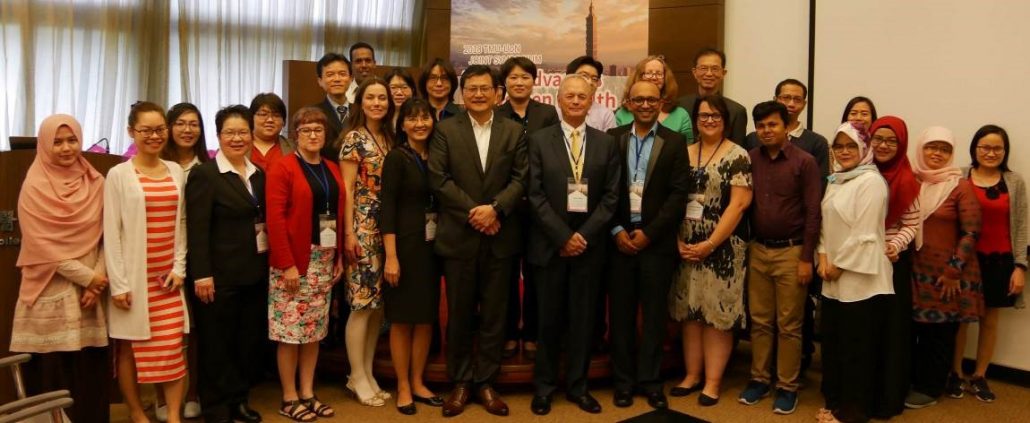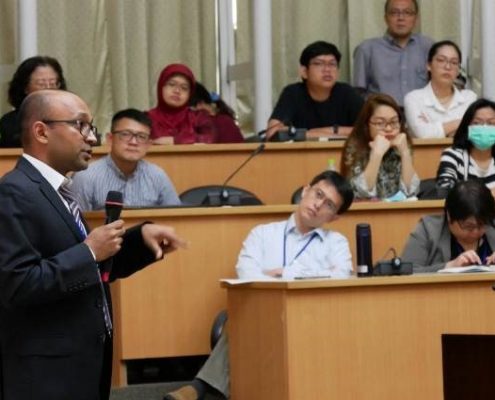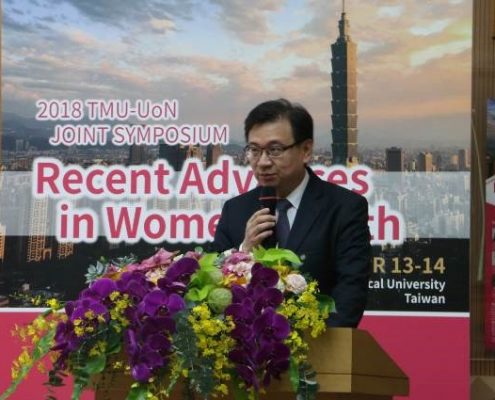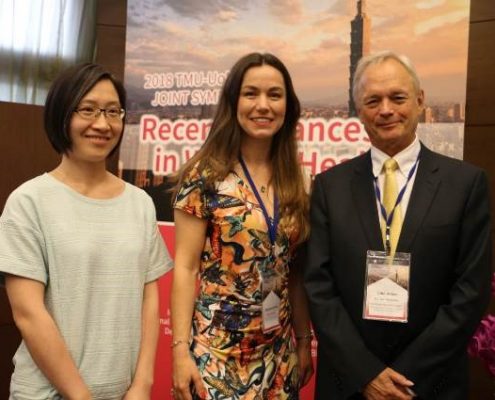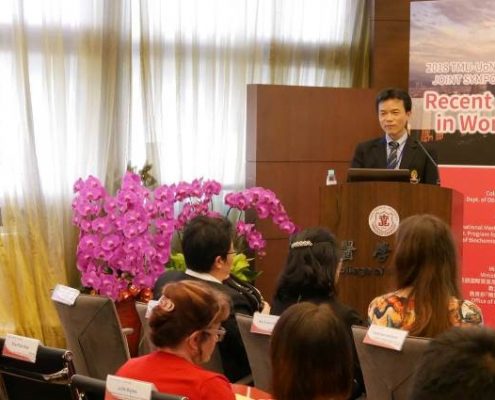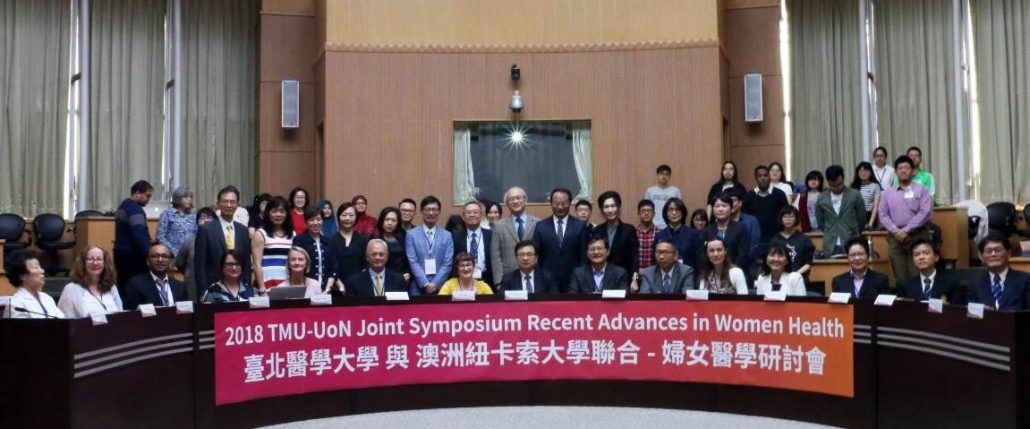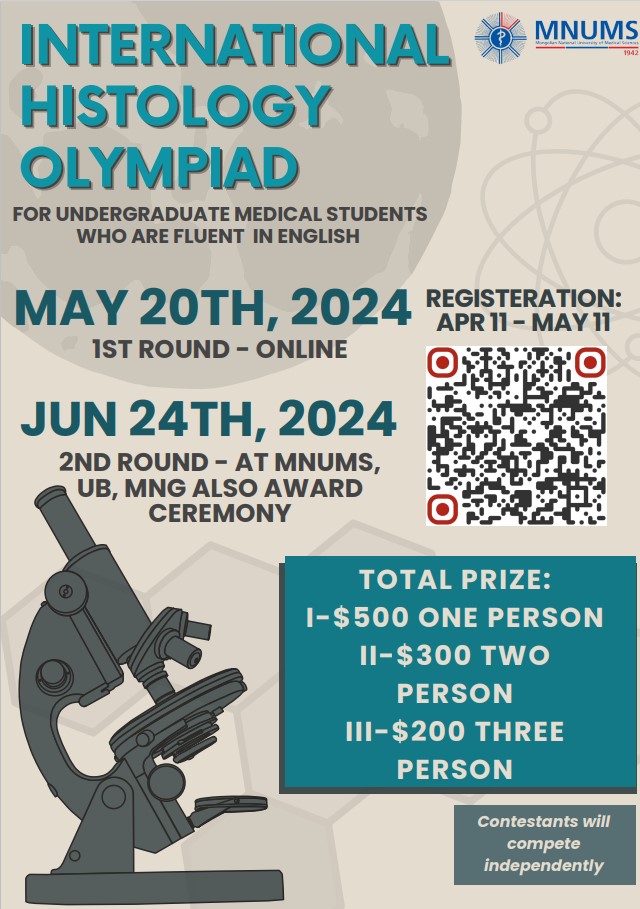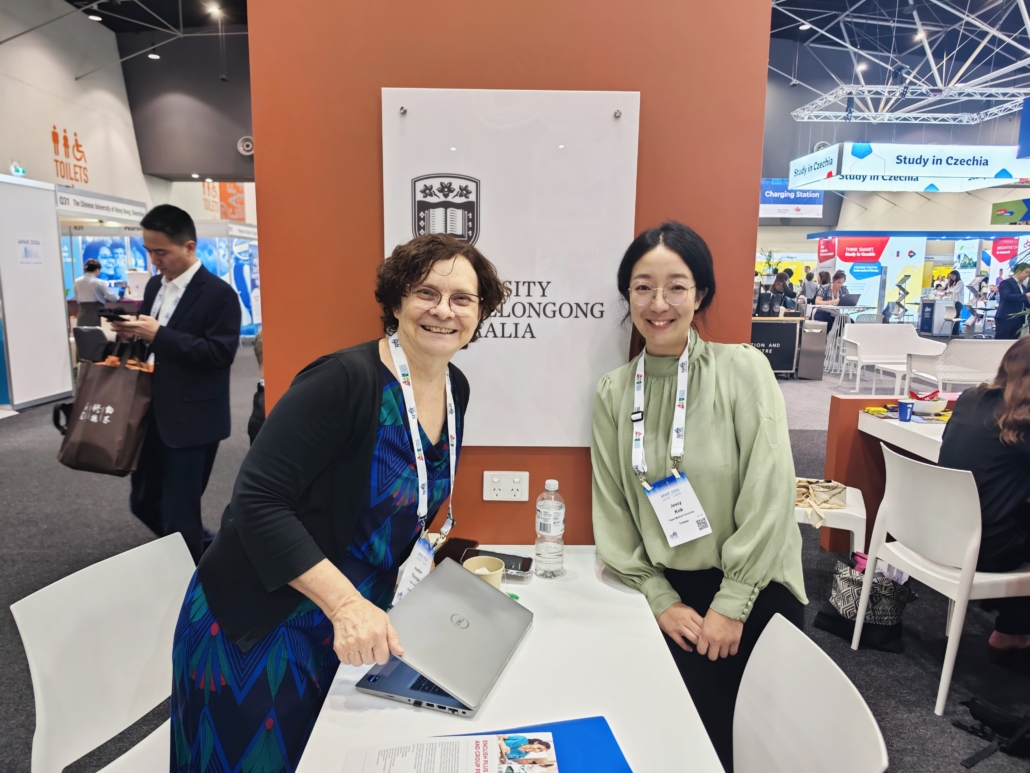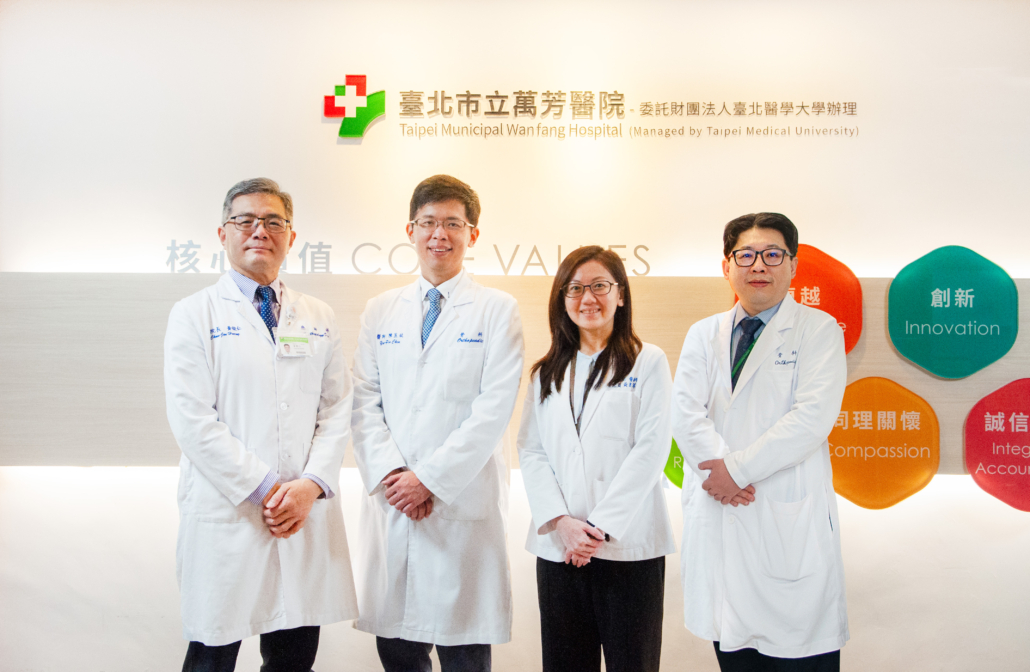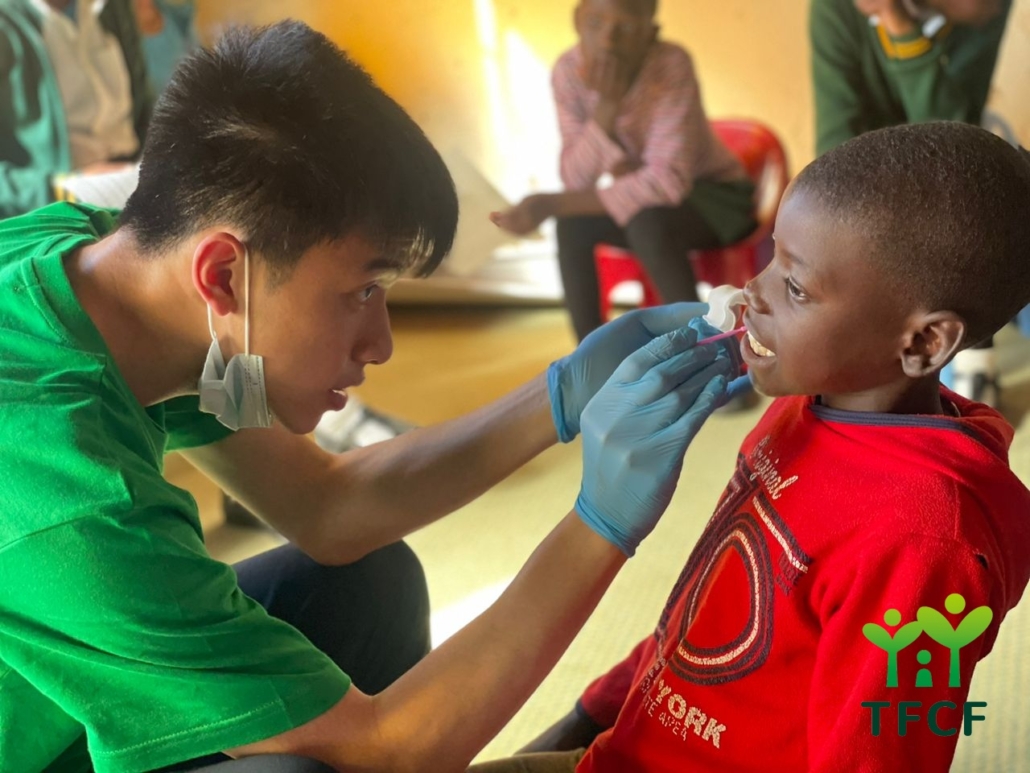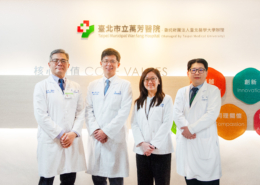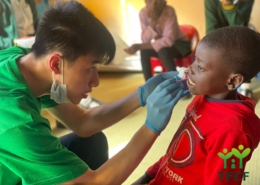TMU and Australia’s University of Newcastle co-hosted women’s health meeting
Source: College of Medicine; Shuang Ho Hospital
Published on 2018-05-14
TMU and the University of Newcastle (UoN) co-hosted a joint symposium on recent advances in women’s health in April. Numerous scholars who have made contributions to this field were invited, drawing over a hundred local and overseas attendees.
Dr. Julie Byles of UoN had visited TMU in October 2016 to offer a special lecture, and in this year’s event she and Dr. Pradeep Tanwar, Dr. Kerry Inder, Dr. Isobel Hubbard, Dr. Catherine Chojenta and Dr. John Aitken shared their latest research results.
Dr. Pradeep Tanwar noted lifestyle links to endometrial cancer risk such as long-term stress and obesity. TMU is collaborating with UoN to research this relationship between lifestyle patterns and cancer in women by carrying out clinical trials using molecular smear screening for endometrial cancer at university-affiliated Shuang Ho and Wanfang hospitals as well as three other medical centers. Establishing an accurate basic screening system will help catch endometrial cancer when it is more treatable while creating new opportunities for Taiwan’s biotechnology industry to develop in vitro diagnostic reagents.
Did you know? |
| Endometrial cancer’s incidence has increased until it is among the top 10 cancers in women. Taiwan has approximately 1300 new cases every year, and worldwide the number is expected to reach 400,000 in 2020. Because there are no good screening techniques for this disease, Deputy Superintendent Hung-Cheng Lai of Shuang Ho Hospital has spent three years with his team researching the world’s largest endometrial oncogene database. They found three key genes that can be tested for methylation to detect endometrial cancer with up to 90% accuracy.
This new molecular smear test is projected to reduce the cost of endometrial cancer testing by 80%. In Taiwan, such a test costs around NT$7000, and it is 30 times more expensive in the United States. A less-expensive test could benefit women worldwide. |
A research group at Charles University in Prague used molecular diagnostics to measure the dynamics of two proteins on cell membranes to determine sperm quality. This can help in increase IVF fertilization rates. Sperm quality currently is based on microscopic observation of mobility, quantity and external appearance of cells. Yet fertilization is not guaranteed even if seemingly good-quality sperm are placed with ova for IVF, or if intracytoplasmic sperm injection (ICSI) is carried out. Thus the molecular diagnostic method developed by Charles University is of particular interest.
The research group led by Dr. Katerina Hortova at Charles University found the proteins CD46 and Integrin on sperm cell membranes. When fertilization takes place, these proteins shift their position on the membrane, so they might be useful in selecting sperm with better fertilization capabilities to improve IVF success rates.
Dr. Chien-Wen Chen, attending physician of obstetrics and gynecology at Shuang Ho Hospital, said these research results provide a new direction for IVF technology. However, she noted that there are many reasons for infertility, and the best solution is to find the reasons specific to each case. Prof. John Aitken of UoN said research has shown that occupation, ICF technology and environmental pollution are all critical factors affecting human reproduction.
Deputy Superintendent Hung-Cheng Lai of Shuang Ho Hospital noted that men’s health is also essential for fertility. Smoking less and keeping body weight healthy helps to promote sperm quantity and quality, and sets a good foundation for having children.

